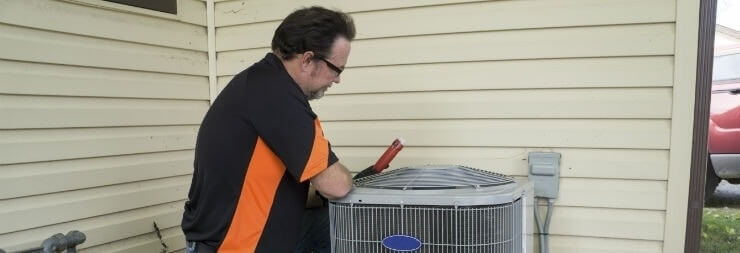An air conditioner is an essential part of living in Florida. Not only is it crucial to escape the year-round heat and humidity, it also brings additional benefits — such as improving indoor air quality, keeping pests out, protecting your home from mold, and preventing your electronics from overheating. However, even with proper care and maintenance, the average lifespan of an AC is between 15 and 20 years. But, since there’s a significant range between those dates, how do you know when it’s time to replace yours?
6 Signs You Should Replace Your Air Conditioner
1. It Needs Constant Repairs
One of the many benefits of scheduling regular maintenance for your air conditioners is that an HVAC technician will be able to detect potential problems before they occur. As a result, you nip the issues in the bud before they become costly repairs. However, if you find yourself having to call a technician every other month, it makes more financial sense to invest in a new unit. In addition to saving you the constant repair costs, your energy bills will also likely be reduced — as newer models are more energy-efficient.
2. Poor Indoor Air Quality
Indoor air quality (IAQ) refers to how the environment inside your home can affect the health or you and your family. For example, an allergy sufferer may want to stay indoors to avoid pollen, but an old air conditioner can be even more harmful. This is because if it fails to remove enough humidity, your home becomes fertile ground for mold growth and other allergens — including an accumulation of dust, pet dander, and dust mites. If people in your household have been experiencing irritation of the eyes, sore throat, headaches, coughing, and/or congestion on a regular basis, the IAQ may be to blame. You can improve it by changing air filters regularly and by having the air ducts professionally cleaned. But, if your AC is old, it may be time to replace it altogether.
3. High Energy Bills
If you have substantially high energy bills, your air conditioner is not working efficiently. While this could be the result of dirty air filters or a clogged drain line, it could also mean that your unit is malfunctioning and/or built long before the Environmental Protection Agency (EPA) started promoting greener alternatives — such as those backed by the Energy Star logo. Service your AC and talk to an HVAC professional to pinpoint the reason for your high energy bills.
4. Weak Airflow
There are several reasons why an air conditioner could have weak airflow. These include dirty air filters, frozen coils, or blocked air ducts. Dirt and debris (as well as the ice caused by clogged filters) will restrict the air conditioner’s airflow. If this is not resolved promptly — such as by changing the filters regularly and scheduling periodic maintenance — it will eventually affect your air conditioner, decreasing its lifespan.
5. It Requires R-22 Refrigerant
R-22 (also known as Freon) is a component that cools down the warm air absorbed by your air conditioner. While it gets the job done, it’s also harmful to the environment, as it depletes the Earth’s ozone layer. It is for this reason that the EPA amended the Clean Air Act, establishing that all air conditioners manufactured on or after January 1, 2010, use a safer alternative. Since not everyone needed to change their AC by such date, the plan has been to phase out the use of R-22 by the end of 2020. If you don’t know which type of refrigerant your air conditioner requires, you can verify by checking the nameplate — which is located on the condenser unit.
6. It’s an Old Unit
As mentioned above, air conditioners typically last between 15 and 20 years. This timeframe will depend on whether the air conditioner received regular maintenance and other factors such as being exposed to power surges, floodings, or other natural disasters. Regardless, you’ll have to invest in a new one when it’s been more than a decade since your unit was installed. To know for sure, have an experienced HVAC technician inspect it. They’ll be able to tell you of things you can do to buy yourself more time — such as cleaning the air ducts or flushing the drain line on a monthly basis. They’ll also be able to work out a possible payment plan if your AC has already reached the end of the road.
AC Service Repair in Brevard County
At Colman, we can help you with all of your air conditioner needs. We have a 24/7 AC emergency line to assist you if you have any issues outside our regular business hours. Call us if you need assistance ASAP or for guidance on which air conditioner is best for your home.
24-HR Emergency Service: (321) 269-4565








